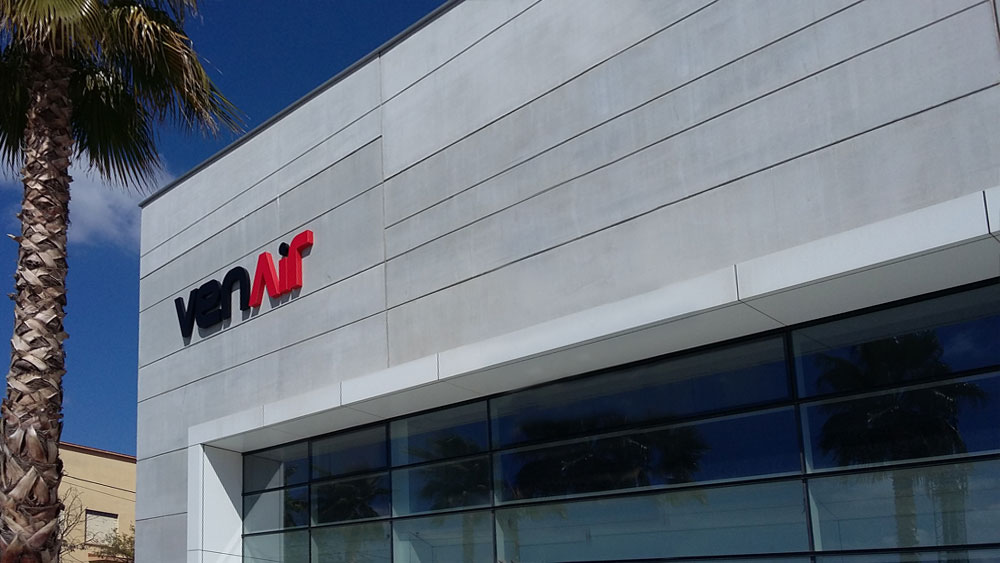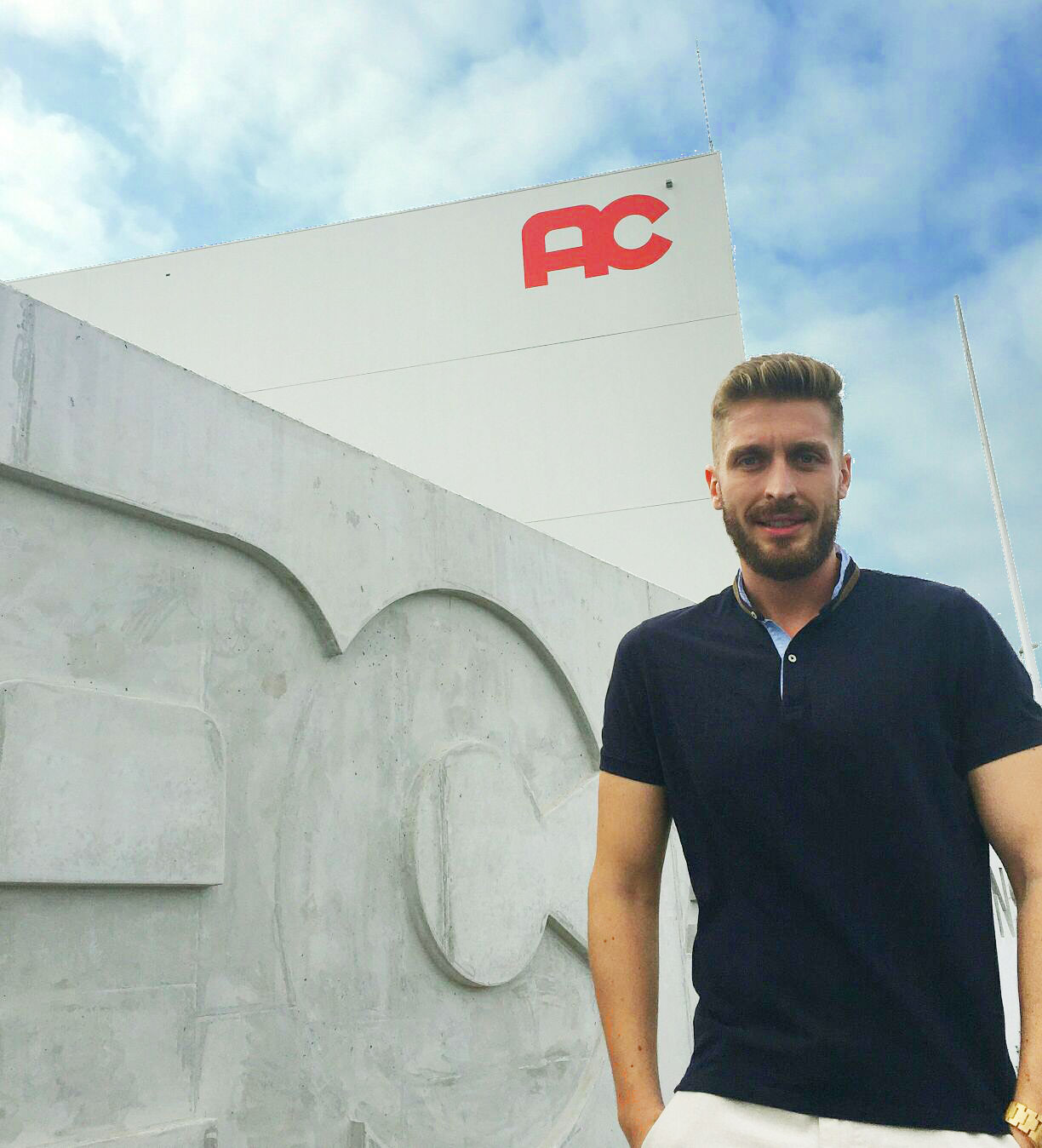The key to recruit efficiently is simple: selection processes always require efficient Human Resources Professionals that own a deep knowledge of their company. David García Tapia is the perfect example, he is the HR Director of Venair,a multinational company specialized in manufacturing silicone hoses for different sectors such as automotive, aeronautical, FMCG or Pharmaceutical, and that distributes his productos in more than 65 countries among their 26 local offices.
Q. David, your profile seems quite interesting, since you are an Aeronautical Engineer, and started in Venair as a R+D intern. You joined the lab, and after getting to your office in Brazil, the Management offers you to create the HR Department from scratch. Did your experience influence the promotion to HR Director of the company?
A. I believe it was purely a matter of trust , even though I got to this conclusion later on. They obviously trusted me but that is something I later understood. We manage expatriations from the HR department. I went to Brazil when I was 25, alone, to implement this new department from scratch. They were maybe scared with me, but they did not say a word about it. Of course there are cases, where people ask you to return after sending them away, just because they could not adapt. These are human matters, but it was not my case at all, trust was essential.
In your case, we can talk about squaring the circle, since you know both the recruitment and technical paths. What does your educational background provide to fulfilling the recruitment needs of the company?
When we are talking about recruitment, I always divide profiles into two categories: sales and executive. Regarding sales, we are the ones in charge of the first round, the second one, except in Vietnam and Russia, is held whether by the local office or the General Management.
Regarding executive profiles (Quality Engineers, Technical Office, Logistics R&D, Marketing, Finance, IT or Purchasing) they are mostly technical. When it comes to interviews, I feel really comfortable, because we are talking the same language. Moreover, in Terrassa, we have the UPC, we are always attending job fairs, the company is well-know and there are lots of students interested in joining the company. When I am carrying out interviews I ask who their proffesors were or what were their favorite subjects, since it is the perfect clue to know what are they interested in and to check if they could fit the position. Practical cases also help a lot. We present planes with different mistakes during interviews, so candidates can explain themselves.
Of course you have a huge advantage because you emphatize both with candidates and managers of the different departments. Could you sketch the profile of your ideal HR Director of an industrial multinational company?
For me, the perfect HR Director has to be humble, open-minded and close to people, because we are in different countries, and you have to be open-minded, otherwise it can be really complicated. The person has to be available to travel often, no matter where, and with a great analytical mindset because we cannot recruit someone that we need if we don’t have a clear definition of talent.
Para mí, el director ideal es una persona muy humilde, cercana y abierta, porque estamos en países muy dispares y, si no eres abierto de miras, es complicado. Muy dada a viajar, sin problemas para desplazarse a determinados lugares y con una capacidad de análisis brutal. Porque no sabemos incorporar a la gente que nos conviene si no tenemos nuestra propia definición de talento.
How would you define the talent that Venair needs?
Venair is looking for flexible people, open to change their countries and ready to move horizontally within the company, and able to adapt to change. Of course, compromise is also important, and I would like to highlight nonconformity: if something cannot be done, we have to go until the very end, not being a conformist at first, thinking that it cannot be done.
This is a really interesting fact because every company needs people going in the same direction, not only with the strategy but also with the company’s philosophy. As a consultancy, we not only need you to tell us that you want an Engineer that speaks English, but also we need you to tell us about your company values and culture.
That’s the key, because if the company needs an Engineer speaking English, but this person doesn’t want to relocate or to travel, he won’t fit with the company at all, because he won’t be able to relocate to another office if the opportunity arises, or, if we do, we expose that in the middle term he would leave the company.

Venair Spain plant, located in Terrassa, Barcelona
Venair has a really important international presence. What happens when you are facing recruitment in a country where you have never worked before?
Cada vez que hemos abierto en un país nuevo… ¡Sorpresa! La experiencia que tengo es que las características culturales influyen un montón. Lo que hago cuando no sé lo que me voy a encontrar es que publico ofertas y en función de la respuesta que obtenemos me hago una idea de cómo va a ser el proceso. No empiezo a picar piedra por LinkedIn porque me consume mucho tiempo. Sólo lo hago en países donde las tasas de desempleo son bajas y la gente no es propensa a cambiar de trabajo ni de región. Por ejemplo, cuando se abrió Polonia costaba encontrar perfiles. Y en aquel momento, como era tan ignorante en la materia, pensaba que iba a ser como publicar en portales de empleo, que iba a postear una posición y los candidatos iban a aplicar rápidamente. Fue un testarazo enorme. No se inscribió prácticamente nadie. Cogimos a las primeras personas pero al final lo llenamos picando piedra por búsqueda directa. Y después de contactar a más de doscientas personas…
Each time we have opened up to a new country… surprise! Cultural issues influence these processes a lot. When I don’t know what I will encounter, I post a job vacancy, and depending on the answer I get from it, I make myself an idea on how the process will look like. I don’t start snitching through LinkedIn because it consumes a lot of time. I just do this in countries where unemployment rates are really low, and candidates aren’t willing to change companies or cities. For example, when we opened up to Poland, it was really difficult to find profiles. In that moment, since I was really ignorant on these matters, I thought it would be as easy as posting a job in some job portals, and candidates would apply instantly. It was a huge dissapointment. Almost nobody applied and we took the first candidates that fitted, but we have to use direct search, and we found the right person after contacting more than 200 people…
Based on your expertise, which markets present the most difficulties when we talk about recruiting local professional for western companies?
China, although using a partner there makes it simpler. mayorThe biggest issues I found where in companies where I went alone, without any partner. For example, Germany or Poland. These two were a huge challenge. Mexico was also quite difficult. There are tons of candidates in those countries, the problem is to fit them correctly. There is a huge cultural gap that keeps you away from seeing some things during interviews. Adaptability in the middle term, they always tell you what you want to hear, they call positions in a different way… In Europe, the biggest challenge isn’t the language, but the lack of people. I couldn’t find any candidate because unemployment rates are really low, and because these profiles aren’t used to look for jobs. But it also has its good part, because you know they aren’t going to be keen on changes. Recruitment in Poland was really complex, thus, I extended the search throughout the whole country. People from other regions asked to work home office, a model that is really new to us. We don’t use this yet, and people demand you that, but this isn’t posible, yet.
Do you believe that recruitment agencies understand client needs or they need to get to know their productive plants and processes too?
I’ve had different experiences with this matter. In China the position we were looking for was too junior and their questions were also simple. I think they didn’t want to get into detail. However, I got asked tons of questions in Europe and the US, and they seem to be really interested to get to know every detail in business. In Italy, we have a geographical limitation, since there is not enough people. When we had to recruit there, I went to an italian start-up. It was not a complex profile, but they posed a lot of questions.
After defining the best HR Director, tell us about your ideal recruitment process from an agency
Bueno, un proceso ideal tendría reporting constante de los candidatos que obtienes, incluso si crees que no van a encajar. Necesito que me digas por qué no encajan, porque a veces la consultora no ha comprendido todo lo que tenía que entender y en esos descartes puede haber candidatos válidos; por otro lado, pido que en paralelo me dejen buscar a mí; y, por último, mucha agilidad. Normalmente las consultoras suelen serlo pero alguna he encontrado que he corrido yo más, y eso significa que si sólo se dedican a selección y yo hago esto y más cosas, se han quedado atrás y podían haberlo hecho antes.
The ideal recruitment process would have constant reporting from the candidates they obtain, even if they are not going to fit. I need to know why they don’t fit, because some times agencies haven’t understood what they had to understand. In those non-valid candidates, could be some fits. On the other hand, I asked them to let me search at the same time. Last, but not least: agility. Normally, agencies are agile, but I have found that I could run faster than them, and that means that they are only specialized in recruitment and I do more things. They were left behind.
***
Do you have problems to locate talent in other countries? If you need to, click here and start recruiting the candidates you need.




